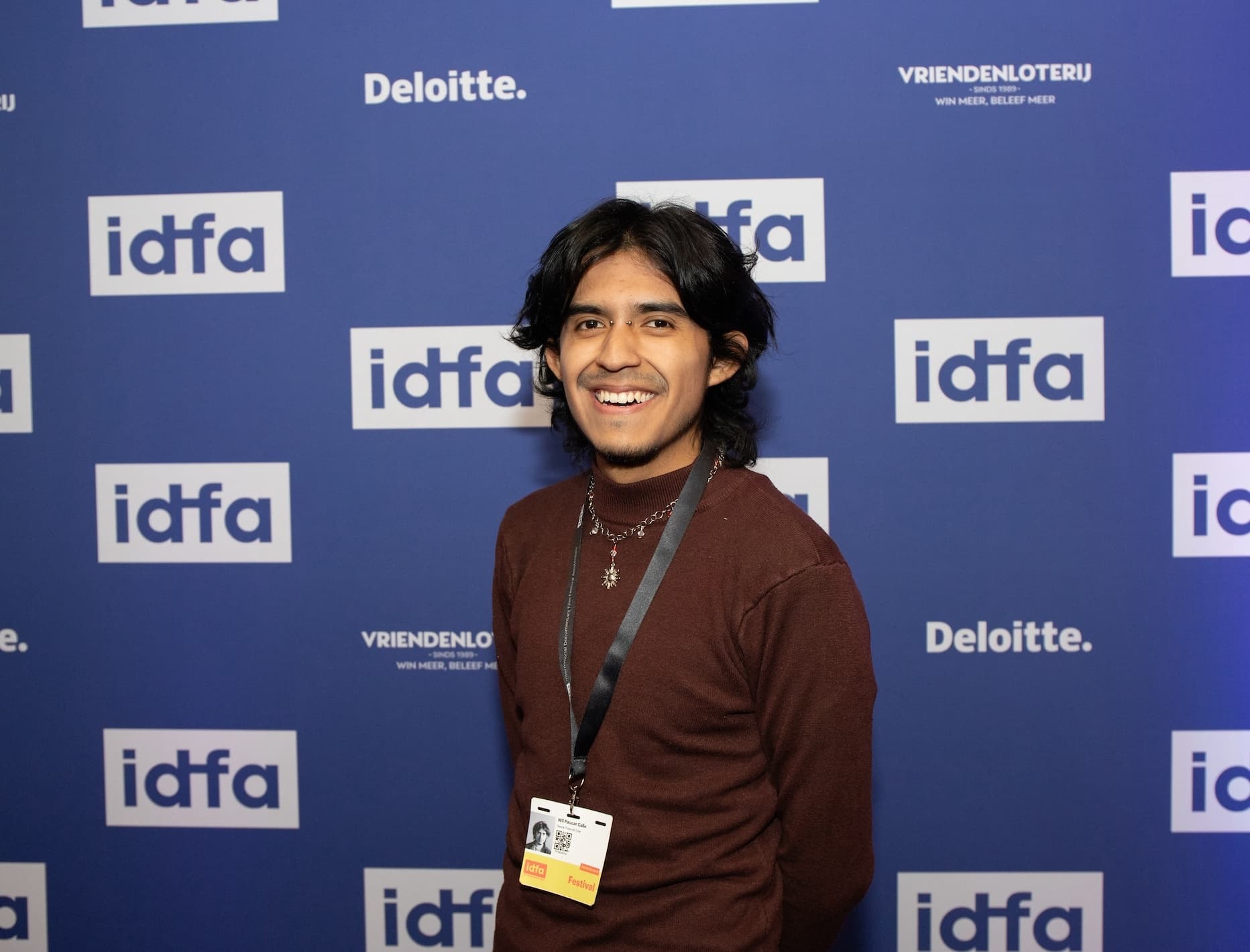
Entering your work: reflections from first-time IDFA filmmakers
The second deadline for film entries has just passed, and with it comes a rush of new films from across the globe—each one a deeply personal project, now floating into a shared space, waiting to be seen. For many filmmakers, this is a moment of profound vulnerability: to place your work in the hands of strangers, hoping it resonates, fearing it might not. And for a select few, that journey leads to a premiere at IDFA.
Last year, that was the case for filmmakers like Wil Paucar Calle and Omar Mismar, who brought their debut projects to Amsterdam and encountered not just an audience, but a festival community. Their reflections offer a glimpse into what it means to share a first film on the international stage—and how it can quietly reshape the way you see your work, your peers, and even filmmaking itself.
Wil Paucar Calle is a filmmaker from Ecuador whose short film How to Suture the Soil? was submitted to IDFA for the first time last year—and was immediately selected for the IDFA Competition for Short Film.
For Wil, what stood out most was the sense of care—both in how the films were programmed and in the interactions around them. “What really surprised me,” he says, “was the breadth of the selection and the thoughtfulness behind it. You could tell there was a genuine interest in the different worldviews these films carry.” Drawn to the edges of cinema, Wil found himself just as intrigued by the conversations unfolding in the screenings as by the experimental work shown at DocLab—especially the Planetarium program. “It felt like entering a space where people are not just making images but questioning them—together.”
Also entering the festival for the first time was Beirut-based artist Omar Mismar, whose striking work A Frown Gone Mad (2024) quickly garnered critical acclaim and went on to win the IDFA Award for Outstanding Artistic Contribution.

Left: Omar Mismar at his premiere
Omar came away with a similar sense of affirmation. “I was taken by the variety of approaches to filmmaking, and how these daring experimental urges were celebrated and given a platform,” he reflects. “In a way, it provided home to what could have been deemed an outcast.” His experience underscored something essential: that alternative cinematic modes need not exist at the margins—they can be central, if given the space.
And space matters. For first-time participants, the sheer scale of the festival—sprawled across the city and packed with screenings, talks, and chance encounters—can be overwhelming. Wil admits he hadn’t anticipated how intense it would be. “They should warn us how tiring it is!” he says. “There aren't enough hours in the day to take it all in.” Omar, too, found himself racing between venues, trying to absorb as much as possible. “Giving access to films after the festival, especially for artists, would be such a gift,” he suggests—because even when you’re inside the festival, you're still at risk of missing half of it.
But between screenings and sprints across town, there are also quieter moments that linger. “The conversations after dinner, with other filmmakers, while smoking a cigarette—that stayed with me,” Omar says. Wil recalls the nervous anticipation before his premiere, and the unexpectedly moving encounter with a filmmaker he had long admired, Malena Szlam. “To be programmed alongside her... I hadn’t expected it. Her work was a key influence while I was studying. To meet her in person was incredible.”
Despite the nerves and jet lag, both filmmakers describe the audience interactions as warm, even transformative. “You never know how your film will be received when you screen it outside your own context,” says Wil. “That fear was real. But the response, the openness—it made something shift.” Omar agrees, noting how varied each audience felt. “The jokes landed most of the time, which was a relief,” he smiles. “But there’s always that gap in context, and that’s okay. What’s lost in translation might be replaced by empathy, which doesn’t need translation.”
Now, as a new wave of films enters the selection process, their experiences might offer reassurance to the next cohort of first-time participants. Wil encourages others to take time with their submission. “Know your work, and find the section that matches your project’s language and curiosity. There’s room for many forms here.” Omar puts it more simply: “Bring comfortable shoes, clear your schedule, and stay curious.”
Because ultimately, the festival isn’t just about being seen. It’s about seeing anew—your work, your peers, your possibilities—and maybe, for a brief moment, glimpsing where you belong.
Header image: Wil Paucar Calle at his premiere